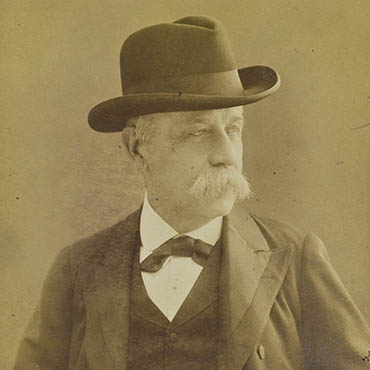Niccolò Nobili was born in 1830 in Florence. He began his studies with the Piarists and finished them with a degree in law in Pisa. He was a lawyer by profession, and after fighting as a young man at Curtatone and Montanara in the university battalion, he was a well-known figure at the time when the Lorraine dynasty left Florence for good and held a variety of political posts. He was an active journalist, especially knowledgeable in economic subjects. He was in contact with the major cultural personalities of the time, partly thanks to his position as superintendent of the Istituto di studi superiori and to the fact that he was a member of the Accademia dei Georgofili. In 1869 he was elected to parliament in the ranks of the Tuscan right-wing party in the constituency of Montevarchi, where he was then re-elected for three legislatures.
He was shareholder and partner in the Successori Le Monnier publishing house from the 1870s and was actively involved in the selection of the texts, the planning of the catalogues and the organisation of the work. He was already the owner of various newspapers, such as La gazzetta del popolo and La nazione, when he bought the Le Monnier printing works, which changed name to Stabilimento tipografico fiorentino. He was a supporter of free trade and against socialism and imposed on the newspaper a critical stance towards the left-wing government. In 1892 he became a senator, warning to the last against the danger of anarchism and socialism.
He died in Florence in 1900. After Antonio Favaro came into contact with Nobili, thanks to Isidoro Del Lungo, he had printed by Le Monnier his first large work on documentary sources, Galileo Galilei e lo Studio di Padova. Initially the national edition of the works of Galileo also was to be printed by the same press, but the Minister of Education accepted the reservations of Favaro regarding the far from robust economic situation of the firm and preferred to opt for the Barbèra publishing house, which was more financially sound. Despite the disputes that followed, sparked off by Nobili himself in the columns of La nazione, Le Monnier was asked to do the printing of the paperback edition in smaller size of the Opere di Galileo. However, that was abandoned after the first volume while Pasquale Villari was minister, a fact that Favaro never failed to underline on every possible occasion.


